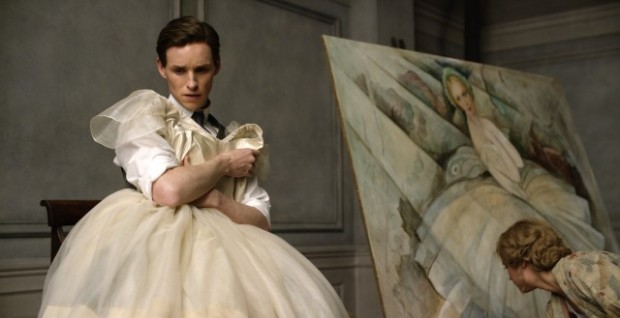I first heard of The Danish Girl when it came to theaters in 2015. A few of my friends—who are far more knowledgeable about and active in the transgender community than I—advised people against seeing it. It was great that a Hollywood production had a transgender character, but the story of Lili Elbe’s transition is hugely different from the majority of trans experiences. Plus, the actor who played Lili is cisgender, even though Hollywood could have easily gotten a transgender person to play the part.

Eddie Redmayne as Einar Wegener/Lili Elbe
So I didn’t see the movie. But a friend of mine had the book, and let me borrow it. And…wow.
I don’t feel comfortable giving this book a regular “review” for a few reasons, the first being that it’s so far outside my comfort zone. I can’t remember the last time I read a literary fiction book. The experience was so, so different from genre fiction. I read slower, and I could tell that the author labored over most every sentence and made conscious decisions about what to include in the scenes. Genre fiction—in particular, science fiction and fantasy—tends to describe every action the point-of-view characters take (or maybe that’s just something I do) so I found Ebershoff’s writing style refreshingly sparse.
Another reason I’m not comfortable “reviewing” this book is because I don’t know if it’s accurate. I’m not talking about historical accuracy; in the afterword, the author explicitly states the he filled in a lot of details missing from his research, and that he straight up created characters to suit the story. I’m talking about its representation of what it’s like to be transgender. I am not transgender, and I don’t claim to know what it’s like to go through that struggle. The transgender people I know each has their own experience, and none of them was exactly like Lili Elbe’s. This admittedly huge aspect of A Danish Girl remains a giant question mark for me.
Lastly, the ending fell flat for me. I knew the real-life Lili Elbe died after her final surgery, so I was expecting The Danish Girl to touch on grief. But the novel didn’t get that far. It ended before Lili’s story did, in my opinion. I would have liked to see the novel explore the various characters’ feelings of grief over Lili, especially because a few of the main characters knew Lili before she transitioned. I wanted to see, in particular, Greta’s grief over losing her husband intertwine with her grief over losing her friend.
Despite these reservations, I would recommend this book. Ebershoff’s characters are compelling and real, and his descriptions of the settings are exquisite. The novel is heavy-handed with the flashbacks in Part I, but they become less frequent as the story goes on. The Danish Girl explores not only one’s changing gender expression and gender identity, but also one’s changing sexuality. For anyone unfamiliar with it, The Danish Girl would be a great place to start learning about the transgender experience. Fair warning: the novel contains a few NSFW scenes and a stunning amount of sexual imagery. (I was expecting a more psychological look at transgenderism as opposed to a sexual one; that could be because the transgender person I know best is also asexual, though.) The Danish Girl is superbly written and quite the compelling read, and fans of literary fiction will find much to love between its covers.